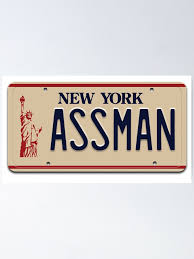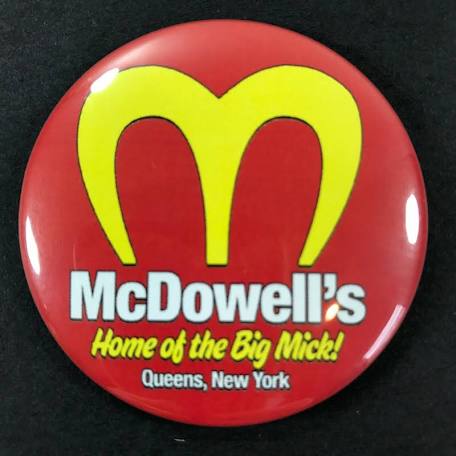Pretty sure my forum name somewhere is “ssman” ![]()
![]()
![]()
![]()
You’re a brave person but I think I would change that.
I was going to say the same thing. Most bass lines you can improvise however you like, add fills etc esp when it’s jazz… but if you’re going to play an iconic bassline like some Larry graham slap part, you’d better keep it close to the original.
On guitar there are so many parts that people play wrong and it just grates on my nerves. Iron man is one of the worst that people play wrong. For blackbird I took the time to learn Paul Macartney’s method of fingerpicking instead of using the standard style.
A lot of original songs have little intricacies that people miss and you just end up with something like a Hollywood reboot… a worse version of the original. If I ask for a big Mac, don’t give me a homemade green pepper burger ![]()
Musically, I come from a vocalist background, and there’s something to be said for making the song your own as a vocalist.
Have you heard Fergie singing the Star Spangled Banner? ![]()
![]()
(A) Make sure I’m in the right key
(B) Nail down the tempo and cadence (rhythm)
(C) Identify the chord changes
Sounds about right.
Take someone like Geezer Butler, how do you recreate a bassline note for note when he doesn’t play it the same way twice?
There are basslines that are iconic which should be respected as such though
Have you heard Fergie singing the Star Spangled Banner?
Or Rosanne?
Take someone like Geezer Butler, how do you recreate a bassline note for note when he doesn’t play it the same way twice?
@JoshFossgreen addresses this quite well here in fact, more about the style than the note for notes.
Take someone like Geezer Butler, how do you recreate a bassline note for note when he doesn’t play it the same way twice?
My answer to this would be that you choose a recorded version, and recreate that one, if that’s what you’re interested in doing. For instance, Bassically (N.I.B. intro) - I’m sure he plays it differently every time, but I would target the version from the album.
But certainly, if you’re not interested in doing something note-for-note, then that wouldn’t apply…
As far as the original question, I find it a challenge to try to recreate the original. If I’m not doing that, then what have I accomplished? Just playing root notes to a Blues Traveler, Phish or Live song (for example) isn’t playing the song, even if a half-drunk, half-listening audience doesn’t really notice.
But, I’m also learning, and not playing live. So, I’m trying to learn - not just do something “acceptable”. Working on a song, as originally played, (hopefully) builds up my skill.
And of course, iconic/known/signature bass lines should be played as written, otherwise I think an “audience” would be confused…
Just my 2 cents of course - every player will approach this differently…
I’m encountering this right now. I’m supposed to sit in with a band. They sent me a lengthy set list, so I’m breaking it down to:
- songs with distinctive bass lines, e.g. the intro to Don’t Stop Believin’, the Pretenders My City Was Gone, Amy Winehouse Back to Black. You can’t fake those
- the band’s marquee songs, the ones they are known for, where I at least have to get pretty close to the recorded or well-known version, but don’t have to be note perfect
- all the rest, where roots, fifths, octaves, and arpeggios are probably fine (but grate against my perfectionist nature)
You know, usually question like this go off the deep end, but you guys are proving what I already knew: bassists are just better thinkers. 
@John_E, that’s a fantastic video. I opened it on YouTube so I could like it.
@LeftyChad , I like your breakdown. The more we talk about this the more I think you are spot on. There are songs and sounds that demand fidelity, and then there are fairly straightforward songs that have a particular bit that’s important, and then you have pretty bla songs that just need the normal treatment. It makes sense that there’s no necessarily one-size-fits-all answer to my questions.
Hmmmm. Nuance. It’s a beautiful thing.
And @skydvr, I liked what you said about learning. Definitely always learning.
But I will pick a bit at the “even if a half-drunk, half-listening audience doesn’t really notice.”
Even musicians that I’ve worked with who have trained ears (been through ear training curriculums even) don’t usually “hear” what the bassist is playing. For all our strutting, if we aren’t in the spotlight soloing, I think people feel what we play more than they hear what we play. If we aren’t screwing up the song, we are doing something right. Or as I heard a bass teacher at a University quote recently as saying “you played so well I didn’t even notice you.” I’m not sure if that’s recycled from somewhere, but it definitely passed the bite test in my experience.
Wow. Sorry @sshoihet. hahahahahahah
Even musicians that I’ve worked with who have trained ears (been through ear training curriculums even) don’t usually “hear” what the bassist is playing.
Sure, I get that…
Unlike other instruments in the pop bands bassist have some wiggle room. Of course we don’t want to F up any iconic bass lines like ‘Under pressure” miss the time here and there the you get Vanilla Ice, lol.
When I comes to fills and transitions I think you can put your own spin to it as long as they fit the genre.
There are 2 main reasons fo me not doing 100% of the recorded originals.
One, and that’s a big one, I have not master that lick, fills, grove just yet. We’re all approaching the songs by either from start to finish or the part we can play the rest is work in progress. Until we nail that part it’s gonna be what we can play. Usually, the songs we pick are the one with interesting parts or challenging. That’s why we want to play/ learn it to improve and add them to our tool bag.
Two, we’ve done it a thousand times and a variation spices up things a bit. Mind you there’s not much to add to “Deantown” or “teen town” for that matter. Most songs we play will offer spots here and there to add your own secret sauce without changing the vibe of the song.
If it’s a challenging songs nailing it is obviously a priority, then repetition, repition. It takes a few thousand times well at least a few hundred times for the licks or fills to sound mature like they have been under your fingertips for a few decades.
So what is it that drives the expectation to play a facsimile of the original?
This is a great philosophical question! I guess it depends why you do a cover - are you aiming to learn a riff or fill for example, or just want to have fun? I suppose there could also be like a zen element where you aim to perfect a sequence for its own sake.
I guess a lot of people feel they have to reproduce a cover exactly because a lot of music schools (especially those for kids) still train bands and orchestras to play that way - there were no recording / playback devices 100 years ago and most musicians were living playback devices.
I personally try not to get too bogged down in playing a cover exactly, unless there is a particular part I want to steal from it. I got into bass playing for the laughs and the women, and the women stopped a long time ago ![]()
I’m at the stage where I’m happy to learn a song, hit all the right notes at the right time and get through a cover in one piece.
What I try to do when I cover a song is to identify the feel that the bass brings to the song and the role it plays. This is basically a combination of ear training and my own take on it because I might want to put more emphasis on some aspects.
Is it a melodic bass line? Does it hammer a very straight rhythm through while the guitar and singer are all over the place? Does it make me dance in a certain way? Does it drag, does it push? Does it provide a more subtle carpet of sound?
I sometimes use metaphors (like the train in Folsom Prison Blue) or visualise a certain body movement to describe that feel to myself. So this is what guides me in my playing and in the end I will have brought a personal touch to a duplicate. If you look at all the different versions of the same song in the 50 Songs Challenge you see that even though we all play the same, we are all quite different in more or less subtle ways that don’t have to do with skill. I always find that fascinating.
With the B2B First 50 and the Hal Leonard First 50 I usually try to play everything note for note, because those songs are there for the educational value. Most of them introduce and teach some kind of concept or technique (syncopation, 16th notes, a hammer-on or a pull-off here or there, a challenging finger stretch, etc), and skipping those would kind of defeat the whole purpose of learning the song. Kind of like doing half-reps at the gym - you’re doing the workout, but it’s pointless, because you’re skipping the important part of it.
With other random songs (from songster etc) I’m not so strict, because chances are that the tab is incorrect in the first place, so there’s no point being strict about it.



